Last Tuesday morning in West Oakland, I had the privilege of listening to and learning from Acta Non Verba: Youth Urban Farm Project’s Farm Manager, Aaron De La Cerda. Acta Non Verba: Youth Urban Farm Project (ANV) is a Bay Area non-profit organization, dedicated to increasing access to fresh food in Oakland’s inner city through urban farming.
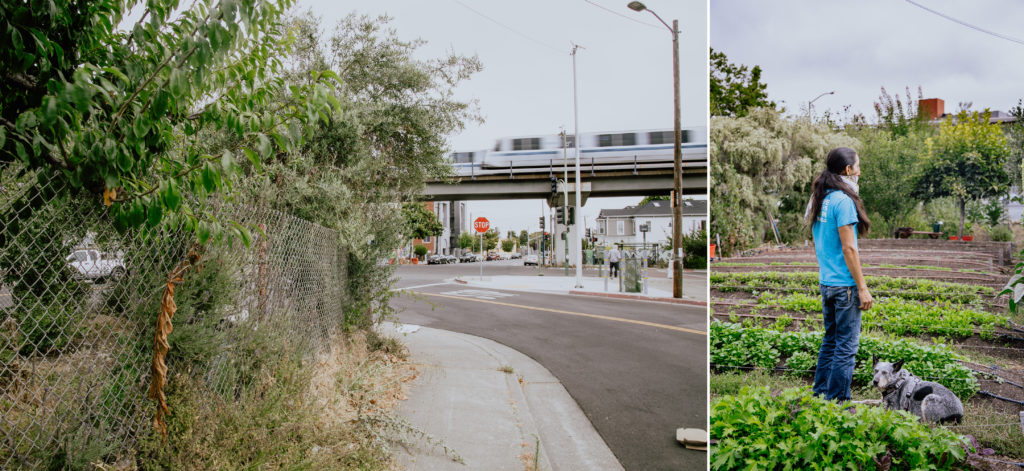
Arriving at the address that was provided to me the day prior, I was surprised by an encompassing sense of tranquility. Wedged between two intersecting streets, and below a frequently trafficked BART bridge, lies one of Acta Non Verba’s three urban Oakland farms. This particular site, a 1/8th acre of land that previously served as a parking lot, is now a haven of vibrant, biodiverse farming. Within this small urban farm, Aaron and his team grow a vast array of produce, from pineapple guavas to mustard greens. Across from the entry gate, an impressive setup of multiple composting methods serves as a reminder of the farm’s organic practices.
I was first greeted by Aaron’s dog, who I was later told is a big fan of the radishes they grow at the farm. Aaron then led me to a table by the farm’s fence, where we sat at opposite ends with our faces masked. I began by asking him about his background in agriculture, to which he reflected on his youth education in agricultural science and his upbringing near the farming hub of Fresno, CA. After college, he moved to work as a youth educator and landscaper in East Oakland, where a friend invited him to join Acta Non Verba. Aaron has now been farming with ANV for around three years, and manages the farming site at which we were meeting.
Aaron explained to me how the urban nature of ANV’s farms serve different purposes for different people. The farms are intended to produce food as a means of engaging Oakland’s underserved communities and youth, therefore giving agency and food to those who need it the most. ANV’s larger East Oakland farm serves more as an intentional outdoor classroom, while this smaller West Oakland farm is primarily for production.
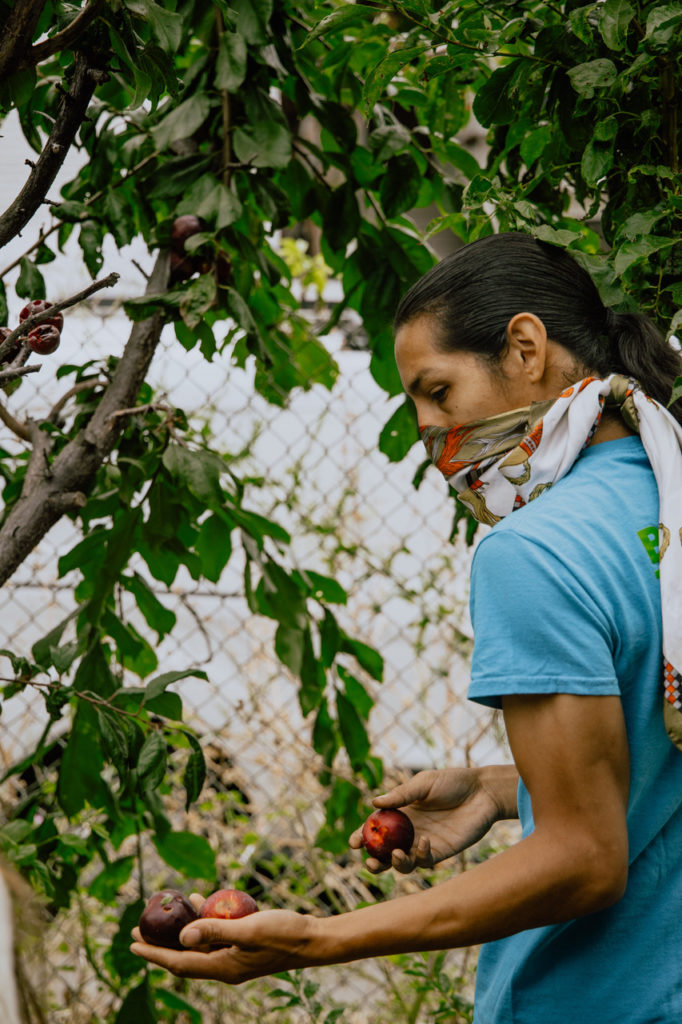
We soon shifted to the topic of gentrification, an unfortunate and ongoing reality for the vast majority of the Bay Area. The neighborhood surrounding ANV’s West Oakland farm was part of Oakland’s previously redlined regions, and is now being gentrified by more affluent and white demographics. Aaron lamented that with this gentrification comes, “cultural extraction, because people are using the ethnic and cultural resources that is Oakland.” He continued by saying that gentrification has been problematic to the farm’s mission in many ways, and shared a personal story of how his college’s city was very clearly segregated by race and class. During his time there, more affluent students and their parents bought up large shares of land, developing them for luxury housing that then made certain areas more desirable, and thus, less affordable for pre-existing residents.
In Oakland, a similar phenomenon is taking place. Houses and neighborhoods suffering from urban decay are being purchased and flipped by people who can afford such projects, making neighborhoods appear nicer and more desirable to affluent buyers. Aaron said that, “people come into these neighborhoods meaning well, but sometimes it’s hard for certain people to accept that some things aren’t for them. Gentrifiers want access to spaces and [unknowingly] force themselves in. It makes it challenging for us because we don’t want to turn people away, but a lot of the time, gentrifiers don’t understand that they’re gentrifying.” His words reflect an unspoken truth about gentrification, that people are too often disconnected from the communities that they’re entering to realize that they’re participating in gentrification. “People have trouble accepting the impact that they have, and they want to negate it by giving back to the community. It’s difficult because I have to tell people that [the farm] is a space for community, and you’re not quite there yet.” The desire for gentrifiers to get involved with Acta Non Verba’s farms is frequently tainted by a white savior complex, and an ‘us vs. them’ mindset towards the communities that the farms exist to serve.
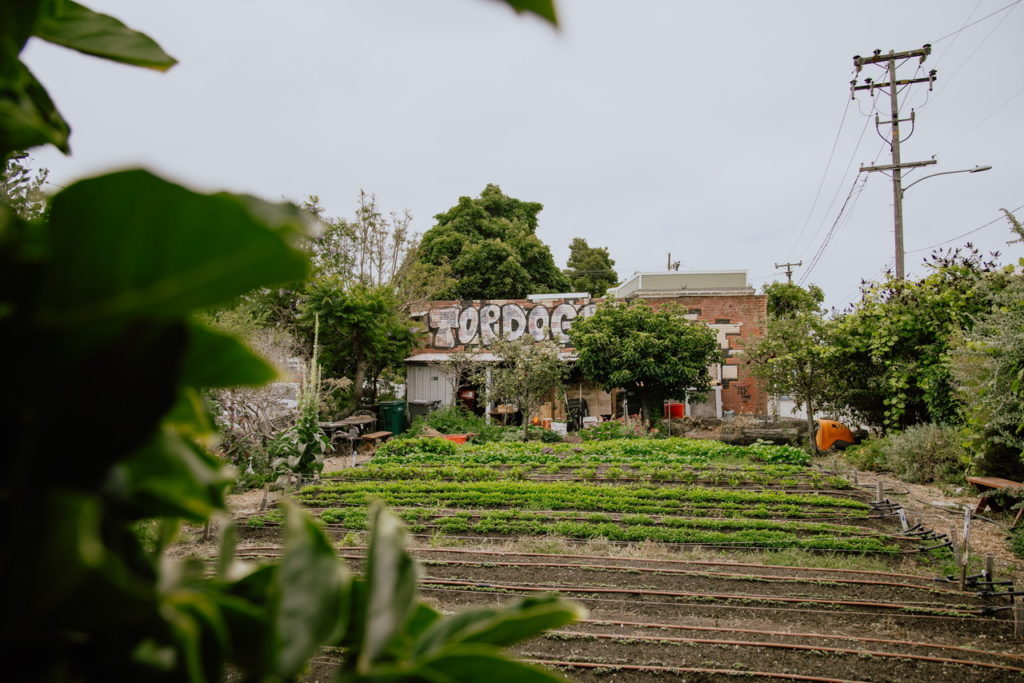
Acta Non Verba’s farms and the work that Aaron does strive to bring people together who don’t have an existing knowledge of urban farming, small-scale food systems, or food cultivation. Aaron said how the demographics responsible for the gentrification of Oakland end up seeking out urban gardens and farms because, “they have access to the very knowledge about urban farming” that ANV works to share with the local disadvantaged communities. On a positive note however, Aaron and the Acta Non Verba farmers have been able to adapt to gentrification in ways that benefit their overall mission. CSA produce boxes are now sold to those who can afford to buy fresh produce, and 100 percent of the proceeds goes into educational savings accounts for participating youth. Gentrification can be a double-edged sword in some cases, but my hope is that urban farms helping to increase food access remain valued for their contributions to truly local communities.
Aaron also had many valuable and insightful comments on the state of our food systems in the current moment. He expressed disappointment for how undervalued and under-resourced small community farms are despite their critical roles, especially when breakdowns of the larger supply chain occur (happening now due to COVID-19). On the topic of adapting to economic downturns, he said, “You don’t see big commercial farms adapting to serve the community. Crops are rotting in the fields right now due to surpluses from restaurant closures. Meanwhile, small farms are underserved, underappreciated, and honestly underutilized.” An upside from the COVID pandemic that Aaron and I agreed upon was people becoming more aware of where their food comes from, and how it gets to them. However, “This food movement is limited to certain areas. Most farmers markets are taking place in more affluent and gentrified areas”, which is ironic because those demographics have the most access to fresh, healthy food. Healthy, local, and seasonal food can be very expensive. There are steps being taken to address this, such as urban farming, but food apartheid remains a major obstacle for many people in urban areas.
Society at large is intentionally disconnected from its food systems. The disconnect from many people and their food serves as a mechanism for subsidized and industrialized agricultural operations to keep production prices low. Unsurprisingly, this comes at a cost, usually for the people and environment that provide us with our food. Aaron commented that, “People go to the store and see $3 per pound for heirloom tomatoes, and think ‘What the hell?’. But they don’t actually know what goes into growing those.” The lack of appreciation for our food’s supply chain also lends to a misleading narrative of who grows our food, and how those people are treated. “There’s this image of ‘farmer’ in peoples’ heads of a landowner and a business owner. People would argue with me about this, but a farmer is the one who knows the land, who grows the land, who harvests the crops. There’s an underlying racial tension of subconsciously knowing that a community of immigrants and Indigenous folk are farming your food, not the white businessman image that we’re being fed.”
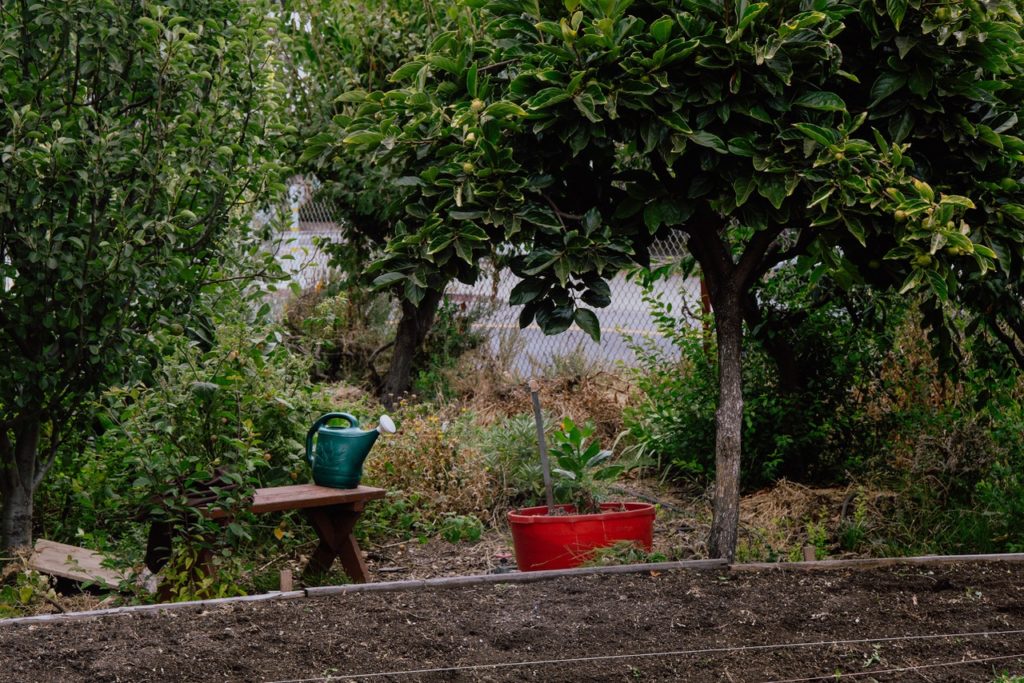
Establishing connection to our food systems on a local level is also a pivotal step in decolonization. When I asked Aaron how he thinks organizations like Acta Non Verba can shape decolonization efforts, he spoke earnestly about what reclamation of food and natural spaces looks like. “A big part of decolonization is to start with the self. I say [that] because this is my body. I want to be able to control everything that goes into it: the air I breathe, the food I eat, the water I drink. Taking back control starts with our own bodies, and having agency in where your food comes from.” Reconnecting people to their food is a primary component of Aaron’s work, where he encourages youth to take control of their food access and consumption. The students he works with, usually from marginalized and BIPOC backgrounds, are a testament to his accomplishments. Aaron said that knowing the impact growing his own food had on him, “If I can do that for even just 1 kid out of many, that’s the most rewarding part.” Through giving people the tools to have food sovereignty, urban farming can pull people back into processes that they shouldn’t be distanced from, processes that have been lost through colonization and capitalism.
Aaron left me with a succinct summary of what farming means to him, and where he wants to see urban farming go in the future. “Farming is not monolithic”, he said, “You don’t have to be an outdoorsy person. You don’t have to be a plant expert or want to save the entire world from hunger.” He emphasized the importance of open-mindedness, and wants to share farming with people who don’t already have an interest in it. Whether someone is passionate about food sovereignty, regenerative agriculture, or just wants to know how to grow herbs without accidentally killing them, “Anyone with any level of interest can find something that they love about farming.”
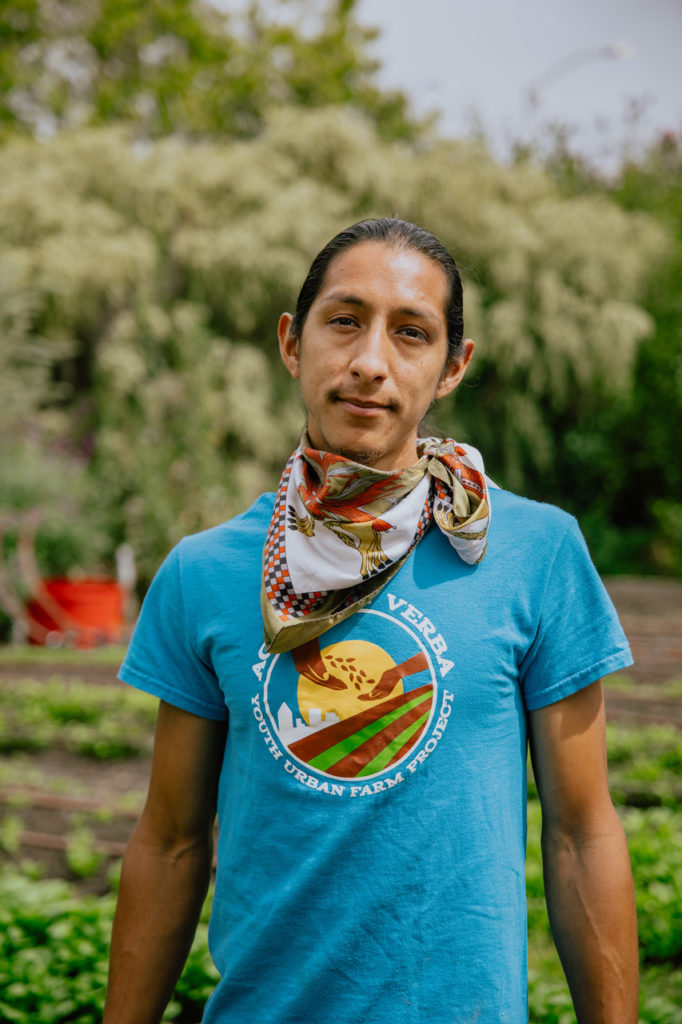
Besides being an incredible addition to his community, Aaron also enjoys reading, mountain biking, karate, and tending to his houseplants. I am honored to have received his words (and vegetable growing tips) for this piece, and express my sincere gratitude for the work of Acta Non Verba.
Founded and led by Kelly D. Carlisle, the mission of Acta Non Verba centers around the defiance of the oppressive structures that make food apartheids possible, and an integral part of ANV’s work involves youth education and exposure to food cultivation. For more information about the work of Acta Non Verba, please click here.
Sierra Barsten is a recent Environmental Studies graduate from LMU, and currently works with environmental non-profits Turning Green and Herbicide-Free Campus. Her work is representative of her passions for sustainable food systems, food sovereignty, and social, racial, and environmental justice.